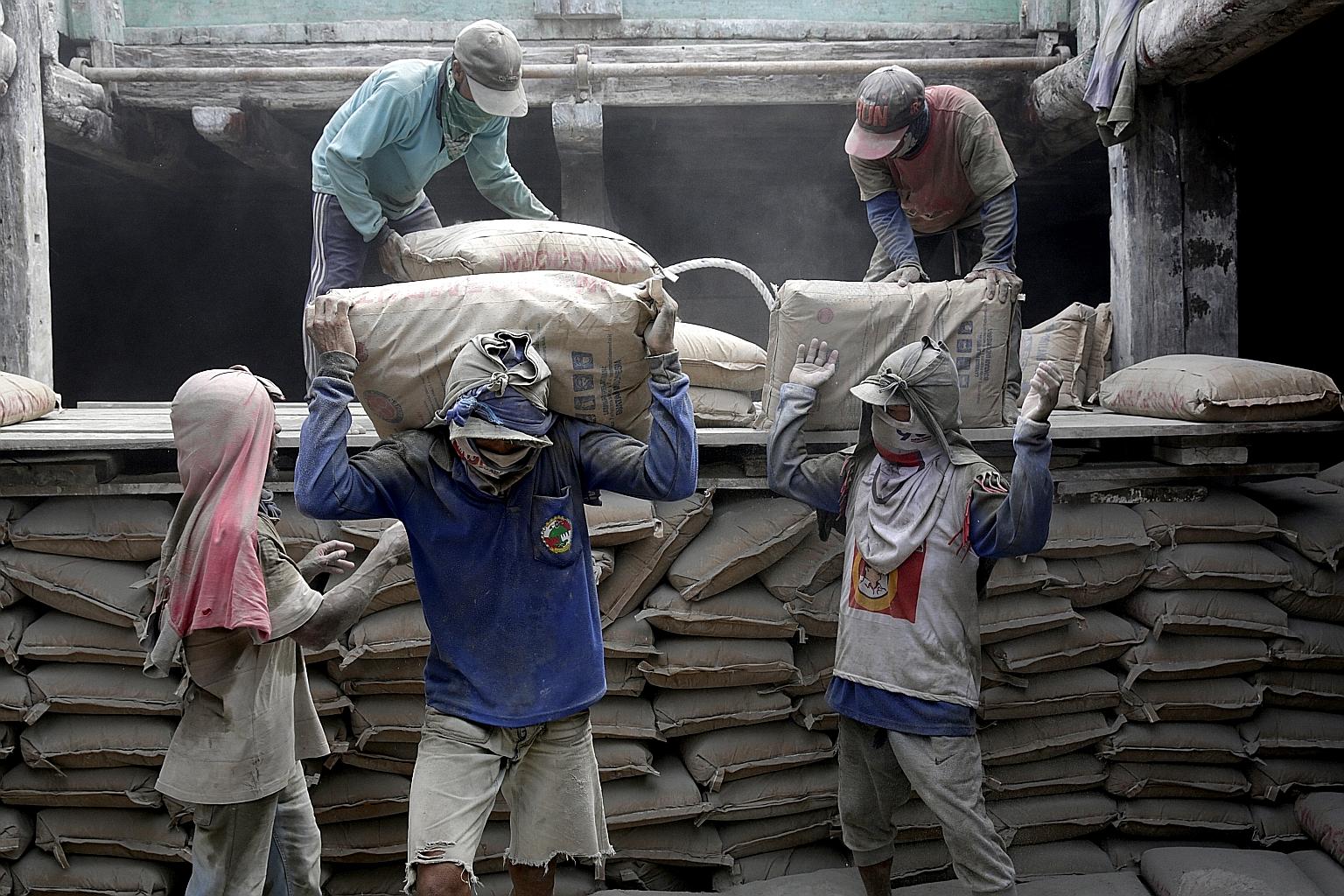Coronavirus outbreak: Business impact
Indonesia plans second stimulus package
Sign up now: Get ST's newsletters delivered to your inbox

Workers loading cement onto a ship at Sunda Kelapa harbour in Jakarta last month. The Indonesian government estimates economic growth would slow to 4.7 per cent in the first quarter, which would be the weakest pace since 2009.
PHOTO: EPA-EFE
JAKARTA • Indonesia is working on a second stimulus package to shore up South-east Asia's biggest economy, adding to the central bank's aggressive moves to counter the impact of the coronavirus on financial markets.
A new tranche of fiscal measures would be "sizeable" and "bigger" than the first one of 10.3 trillion rupiah (S$1 billion) announced last week, Coordinating Minister for the Economy Airlangga Hartarto said in an interview on Monday.
"We still need to inject more stimulus," he added.
Indonesia confirmed its first two cases of the virus on Monday, roiling financial markets and spurring the central bank to action. It pledged to buy more bonds - adding to the US$6 billion (S$8.4 billion) spent last month to stem the market rout - and announced a cut to banks' reserve requirements to pump more liquidity into the financial system.
The rupiah tumbled 4.6 per cent against the US dollar last month, making it Asia's worst-performing currency. The benchmark 10-year yield surged 27 basis points over the same period as foreign investors sold in the rout. Global funds sold US$1.9 billion of Indonesian debt last month, the most since June 2013.
Jakarta's stock market came close to entering bear territory on Monday, with losses nearing 20 per cent from a record high in February 2018. Foreigners have already pulled almost US$360 million from Indonesia's equity funds this year.
Indonesia's new fiscal package would include spending not included in the budget, Mr Airlangga said, implying the deficit may widen from an original target of 1.76 per cent of gross domestic product. The government will aim to help middle-income earners this time around, after allocating 4.6 trillion rupiah for low-income households in last week's measures, he said.
Similar to elsewhere in the region, Indonesia's exports, tourism and investment are taking a knock from the spread of the virus. Mr Airlangga said the government now estimated economic growth would slow to 4.7 per cent in the first quarter, which would be the weakest pace since 2009, amid the global financial crisis.
Growth has been hovering around the 5 per cent level for several years now, reaching 5.02 per cent last year. The central bank has trimmed its forecast for this year to 5 to 5.4 per cent, from 5.1 to 5.5 per cent earlier. When he was first elected in 2014, President Joko Widodo promised to lift economic growth to 7 per cent.
Indonesia's policy response to the virus will also include a streamlining of export processes, with certifications and other documents to be handled at ports of shipment, and cuts to import duties on a range of goods, the minister said.
The government remains optimistic that the economy will recover, with Mr Airlangga pointing to the improvement in Indonesia's factory output last month.
Data on Monday showed the Purchasing Managers' Index (PMI) rose to 51.9 last month from 49.3 in January, indicating a shift from contraction to expansion, even as PMI for China plunged to a record low.
"This is as simple as saying actually the production of China has almost shut down," the minister said. "The expansion in the Indonesian manufacturing sector is an opportunity for Indonesia to fill the gap that is not supplied by China."
BLOOMBERG


